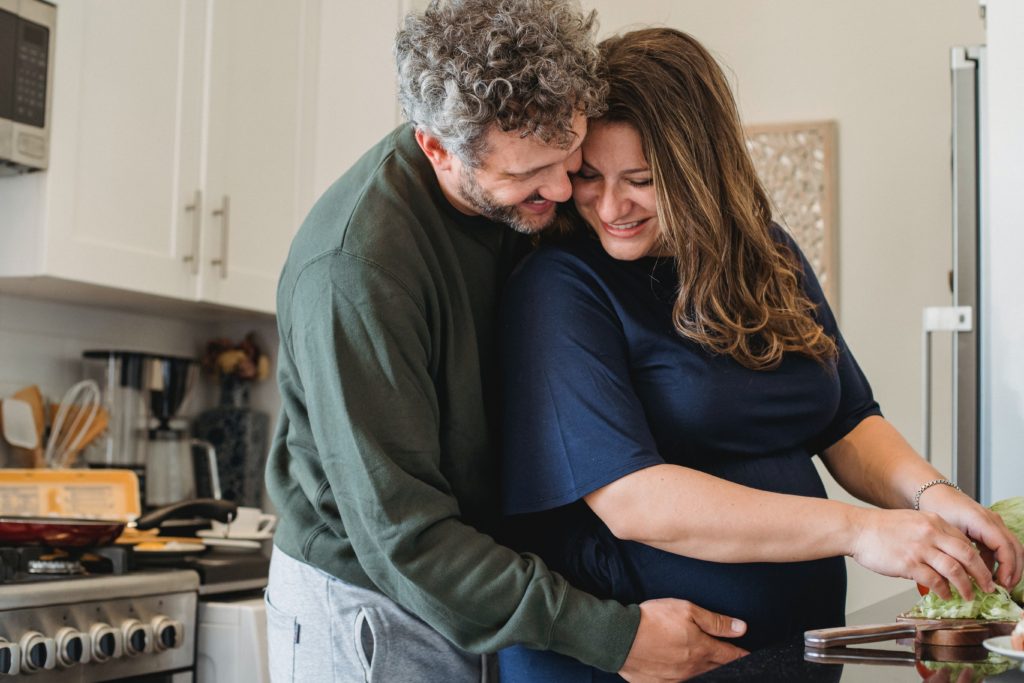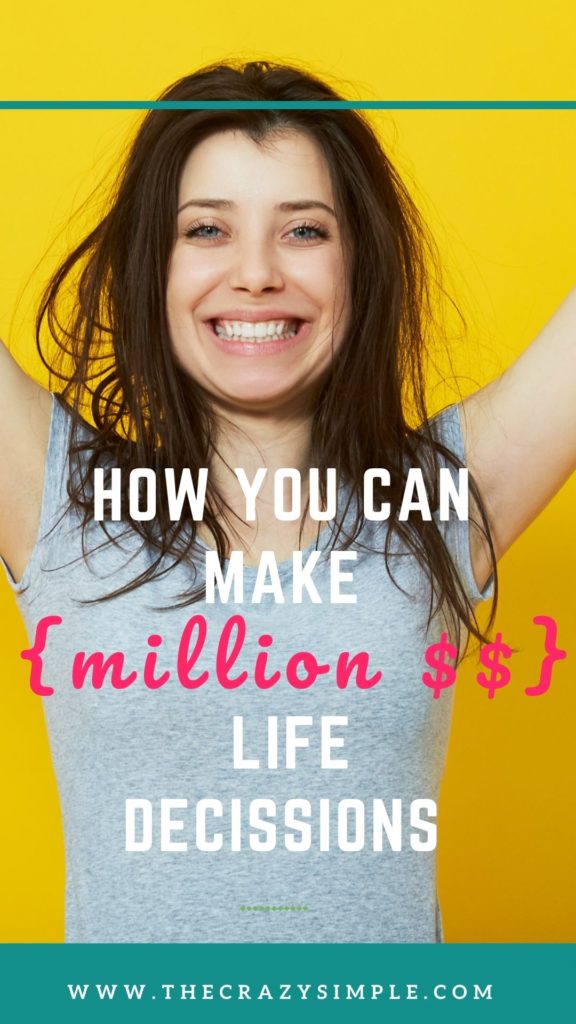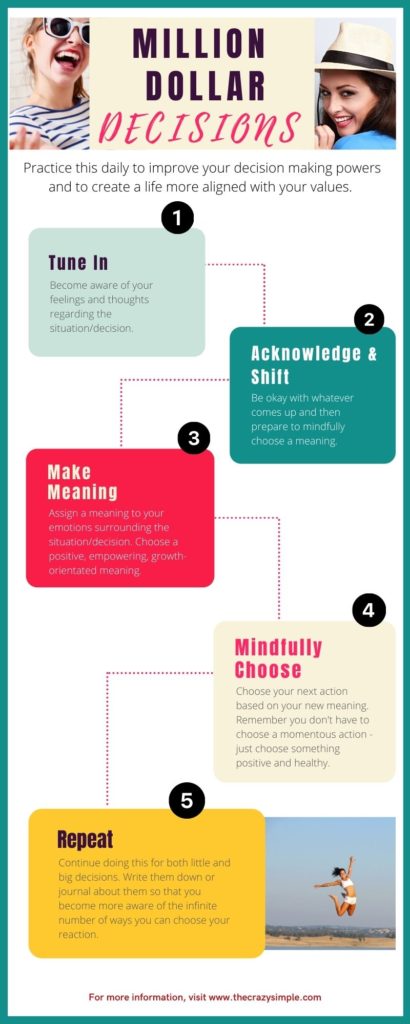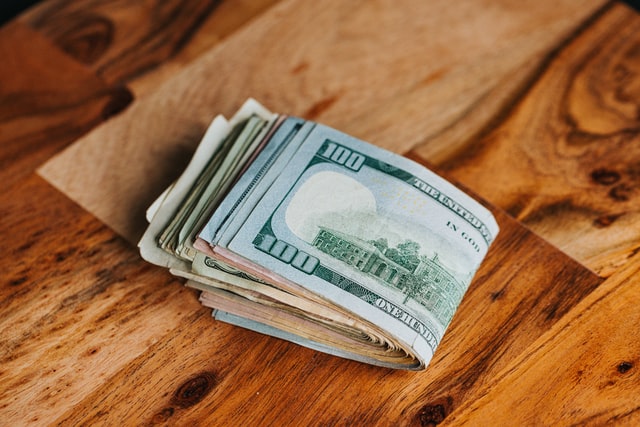Do you make million dollar decisions or do you make penny decisions? The difference between the two determines what your life looks like and it’s one of the most important areas of your life that you have control over. Read on to discover how much your decisions are worth.

If This…Then This
When people code computers, they use conditional logic. If the user presses X, Y shows up on the screen.
If X does this, then Y does this. To use basic layperson terms, computer code uses cause and effect sequences. If you want to get a different outcome, put in a different action.
Although human behavior is much more complicated than a computer program, at a base level, our lives oftentimes follow the same pattern. If you do A, you will get B. This is decision-making at the most basic level.
If you save a lot of money, you will have a lot of money.
If you take care of your body, you will be healthy.
If you invest in relationships, you will have strong connections.

Of course, life and people are not computer code. That means that sometimes, you think your actions will cause one thing to happen yet you sow something unexpected.
Nonetheless, after examining your life, I think it would be difficult to deny that the basic cause and effect relationship has more than a grain of truth in it.
Although this is common knowledge, it’s easy to forget this basic relationship. When the outcomes we reap do not align with our values, we need to examine what we are doing and make changes.
After all, it’s very easy to do something—to react or act in some manner that we don’t give any thought to. We can thank (or curse) our habits, upbringing, beliefs, and our brain pathways for this.

Unconscious Decisions: This is How you Cook Oatmeal
One day, years and years ago, I was sitting in my apartment living room off 24th street in Austin. My roommate, Adrienne, and I were making oatmeal and I guess I had put the water on to boil. I must have been hungry because it was taking forever to heat up and Adrienne asked me why I the stove was set to medium. Why hadn’t I put the water on a higher heat so it would boil faster?
The thing was, I always put things on medium heat. Maybe that was how it was shown to me the first time I learned how to make oatmeal. Or maybe I just did it once and then kept doing it without thinking. Whatever the reason, I was making oatmeal the slow way without even realizing it. (No judgement—I was young!)
How do you Handle …. ?
Of course, that’s just oatmeal. Not really a big deal, right?
But what about those bigger things?
A few years ago I was sitting in a yoga class trying to get my zen on but inside I was bitter. The instructor was good but her style of yoga was fast and difficult. Aside from Bikram Yoga (hot yoga), I like my yoga to take on a meditative, peaceful vibe. This super energetic instructor liked headstands and crazy fast flows.

Although I didn’t like her class, she ended up asking us something that stayed with me.
During one really difficult pose, she asked us, “What do you do when you are uncomfortable? How do you handle those emotions?”
I wanted to get the hell out of the class, that’s how I wanted to handle my uncomfortableness—escape! But when I thought about it in a broader sense, I realized that that was how I handled feeling uncomfortable—escaping through distraction.
It was like a lightbulb went off! That was pretty much my go-to action when I was uncomfortable. Good or bad, that’s what I did.

That was my A and, as a result, I was going to get B…whatever results went along with escaping.
You may not respond to being uncomfortable by distraction. But you do respond somehow.
Do you:
- Get angry
- Get depressed
- Avoid things
- Blame others
- Overthink or ruminate
You do something. And that something, that reaction, has a result.

Tony Robbins Knows what Messes People Up
Tony Robbins produces tons of content on human mastery and living well. One of the things he harps on is mastering our emotions.
He talks about how we are in charge of creating meaning out of events.
The meaning we decide on, will determine our emotions.
And we know that our emotions influence our actions.
So, we must learn to consistently recognize the pause, the moment, when we experience a negative emotion. At that moment we can change the meaning we assign to the event that triggered that emotion. When we do that, our actions will be more mindful, more proactive instead of reactive.
Here’s an example:

Two Decision-Making Examples: The Upset Mom
Let’s take two individuals, two mothers who each have a child who is going through a rough time. The moms both feel anxiety, frustration, and sadness.
Let’s say that mother one interprets these emotions as meaning she is a bad mother. Therefore, along with worrying about her child, she feels depressed, down on herself, and embarrassed. She tries to pretend the problems aren’t happening and does whatever she needs to in order to avoid making a decision or taking an action.
Let’s say that mother two responds to this situation by giving it a really different meaning. She assigns the meaning of her child’s rough time to him being a teenager and all the difficulties that come with this trying time of life.
She has no idea what to do but she attempts to come up with one action to try and move the situation forward. Maybe she makes a therapy appt for herself or decides to meditate to calm her emotions. Maybe she doesn’t know what to do so she decides to tell her child she loves him 10 times a day.

Each mother is taking a different action. Each mother will get a different outcome. And although they only have so much control over the outcome, they do have some control.
Life is filled with situations that are uncomfortable. Situations that initially make us feel indecision, anger, frustration, fear, sadness, etc. How you react to those emotions will partially depend on the meaning you assign them and the resulting action you take.
So, how do you usually respond to big, yucky emotions? What meaning do you give to them?
And, even more important for you today, how does this response help or hurt you?
This is How you Become an Amazing Decision-Maker
I’ve been thinking about how you can use this to give your life operating system—the If A happens, I do B—an upgrade.
There are so many life situations that elicit responses that we never give thought to. Our responses lead us to outcomes, sometimes outcomes we don’t like.
But we can change this by raising our awareness of our actions and our responses. I like to call this decision mindfulness and it can help us fine tune how we use our energy and how we control our life direction.
So, how do we practice Decision Mindfulness?

Decision Mindfulness is Key
Practicing decision mindfulness starts with noticing. Just like we start meditation by noticing our breath, we start decision mindfulness by noticing our reactions to feelings in our body.
Because most of us don’t go around always being aware of our emotions – unless they are really big – we can start by noticing our response to daily activities and then backtrack to the emotions.
Here are few examples to make this more concrete.
Situation: It is time to go exercise outside.
Response: Skip it.
In this situation, the exercise makes you feel physically uncomfortable so you want to avoid it. You feel like exercise is just “one more thing” you need to try and cram into your life. Avoidance is your natural response.
Eventually you’ll want to take this a step further. You want to be aware of your natural impulses but want to tweak them to align to your values.
After all, who knows how I got into the habit of putting oatmeal on medium heat? But that habit doesn’t cook the oatmeal as quickly as I want it to. I can change my actions.
So, since regular exercise is important and makes you feel good, you are going to mindfully accept that you want to avoid this but use your brain coach (the voice in your head) to change the meaning and also, over time, your natural instinct.

You’re going to remind yourself that exercise is simply a part of life—a life tax—if you will and it will help your body function well. You are going to face the uncomfortableness that comes with exercise.
Now, instead of mindlessly reacting to the thought of exercising, you are mindfully and proactively switching things around. You realize that feeling uncomfortable doesn’t mean you shouldn’t do it, just that you don’t really want to. You are reacting to these uncomfortable emotions by owning them but exercising anyway.

What is your Decision Making Pattern?
You can tap into your default meanings and usual ways of responding by journaling. If you practice mindfulness at all, you may already be aware of how you handle emotions. If you can answer some of these questions, do so, and consider whether or not your reaction is reaping the results you really want.
What do you do when you are (or feel) disorganization?
How do you respond to physical pain?
What do you do if you are overwhelmed?
How do you respond to fear?
Once you’ve answered these questions, it’s time to consider what you want your operating system to do for you.
If you don’t like your current actions or reactions, change the meaning you assign to the situation and/or emotion and then consider these options:

- Breath deeply to calm down your vagus nerve before taking action
- Brainstorm 20 possible action steps
- Talk something over with someone you trust
- Make an appointment with someone who has expertise in this area
- Pray
- Affirm your ability to handle this
- Problem-solve for 15 minutes
- Pick the next okay action step
- Remind yourself that most people are doing the best they can
When we becoming mindful of our reactions to our emotions and the events in our lives, we leverage the only power we really have; our own actions.

How much are your Decisions Worth?
We make decisions ALL. THE. TIME. In fact, each day you have almost an unlimited opportunity to make million-dollar or one-cent decisions.
The difference between the two is as different as…well, as different as a million dollars and one cent.
Amazing decisions are million dollar decisions. They are powerful, abundant, and proactive.

To make these million dollar decisions you must be mindful of your decisions. You must proactively assign meaning to events and then choose your next action wisely. A million-dollar decision will be based off a rational, balanced, and positive meaning you assigned to something.
It follows then, that one-cent decisions are the opposite. They are weak, limited, and reactive.
To make these one-cent decisions you do not have to be mindful of your decisions. The first meaning that comes to you or the habitual response you have is what you go with. You’ll see what action follows—the B to your A. A one-cent decision will probably be based off a negative meaning you assigned to something or it is just a habitual response.
So, the choice is yours. You can rack up millions of dollars each day or struggle to earn a dollar.






